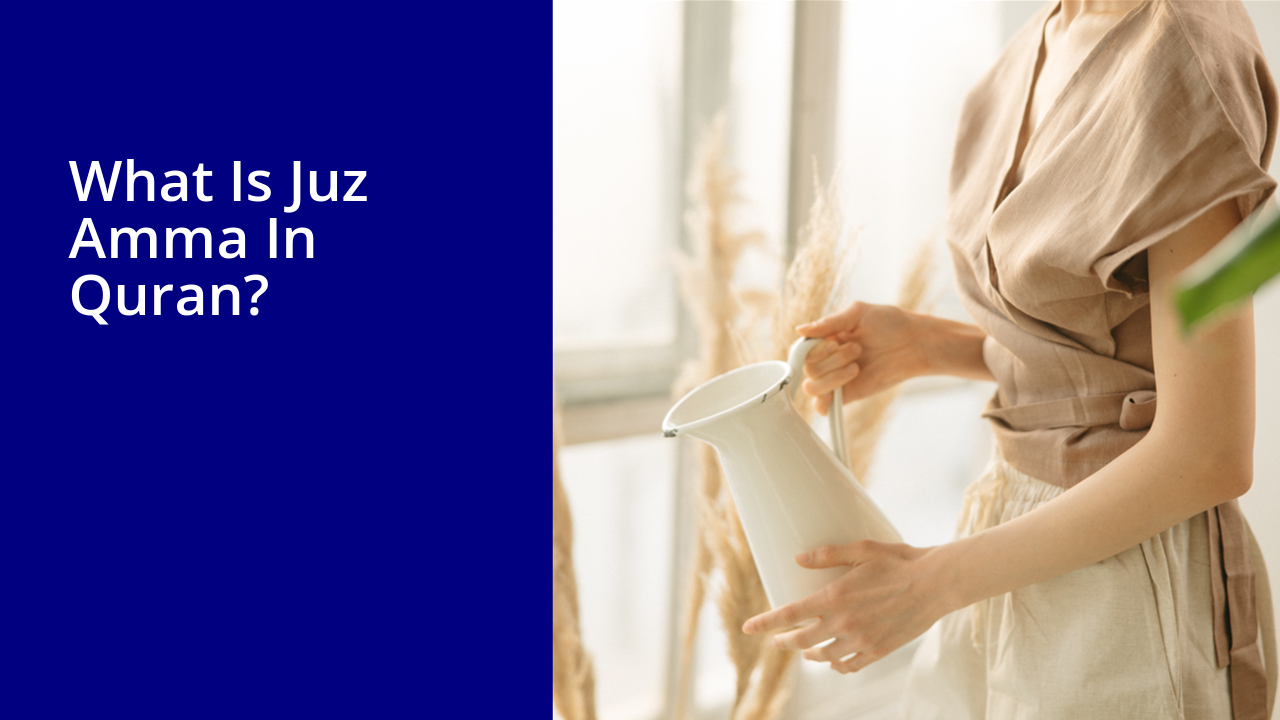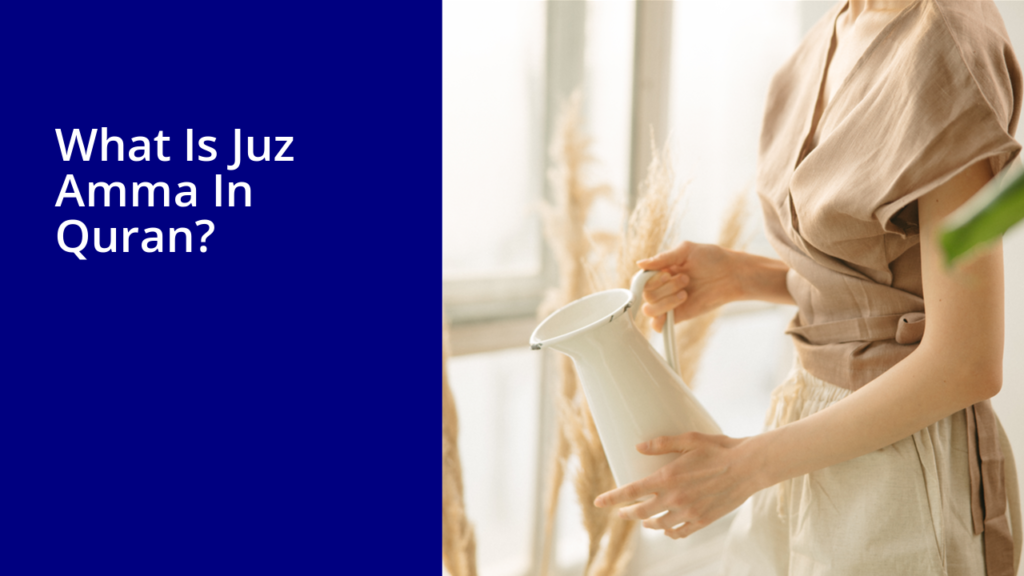
The Arabic word juzamma is a plural form of juzam, which means a specific part of the Quran. The juzam is the section of the Quran that refers to the stories of Prophets, their teachings and their acts of righteousness.
Juz Amma is a Quranic term that refers to the breast milk of a woman.
The Arabic word juz (milk) is used in the Quran to refer to the milk of a mother cow, camel, goat or any other animal. The Quran also refers to the milk that humans produce. In the Quran, juz means whatever substance is given to a child or any animal during the first few months of its life.
The Quran doesn’t describe the physical process of breastfeeding, but it does describe the value of the milk.
The term juz amma, which means food of the mother, refers to milk produced by nursing. In Islam, nursing is seen as a sign of a woman’s purity and devotion to her husband. The Quran says that nursing is a source of great joy for a woman. “A nursing woman and a pregnant woman are equal (in God’s sight).” (Qur’an 2:222)
A woman who gives birth to a child is the first to produce milk for that child, and her milk is the best for that child.
It is the milk that the mother of a child drinks while nursing them, it is the milk obtained from the breast of the mother. This milk is made from pure white blood and nutrients. The child is able to drink the milk at the same time as being able to digest the food.
The Quran refers to the milk of a woman as “juz amma.”
The word juz means ‘female.’ And amma means milk. So juz amma means ‘milk of a woman.’ In Islam, the milk of a woman is the responsibility of her husband. If a woman is unable to give milk, she is not required to do so. Her milk is given to her children from another woman.
A woman’s breasts are likened to the two “horns” of a camel, or the “horns” of a gazelle, for the milk of a woman is the best milk for a child.
The word “Juzamma” in Arabic means the breasts and the milk of a woman. It is used to describe the breasts of women in general. It is also used to describe the breasts of any woman who gives birth to a child. It is also used to describe the breasts of all women who are nursing the children of others.
The Quran describes the milk of a woman as flowing from the breasts of the mother just as water flows from a spring.
The Arabic word for “breast milk” is juz amma. There are many other names for the milk of a woman, such as “nourishment of the earth” or “the milk of the world”. In this hadith, Prophet Ibrahim (peace be upon them all) is asked about the origin of milk. He says: “The milk of a woman is like the milk of the earth. Both originate from the same source, but the milk of the earth is gathered by the roots of plants whereas the milk of a woman is gathered by the nipples of the breasts of her children.”
The Quran says that the milk of a woman is a source of nourishment for the child, and it is the best milk for the child.
The Arabic word juzamma refers to the first three months of a child’s life. It is when a child is born. In Surah Al-Anam, verse 62, Allah says: “Allah knows that which they bring forth.” It was during this time that the child is formed. The mother’s milk is the sole food for the child during this time. In Surat Al-Baqarah, verse 216, it says: “Certainly, with Allah’s name, the life of this world is a long preoccupation.”
Conclusion
The word juzamma in Arabic is a contraction of two Arabic words juz (“age”, “period”) and amma (“community”, “nation”, “people”). It is a term that refers to the period of time when the Islamic Prophet Muhammad’s teachings were first revealed or taught to the whole Muslim community. The term juzamma is frequently used to refer to the first 30 years of Islam.
